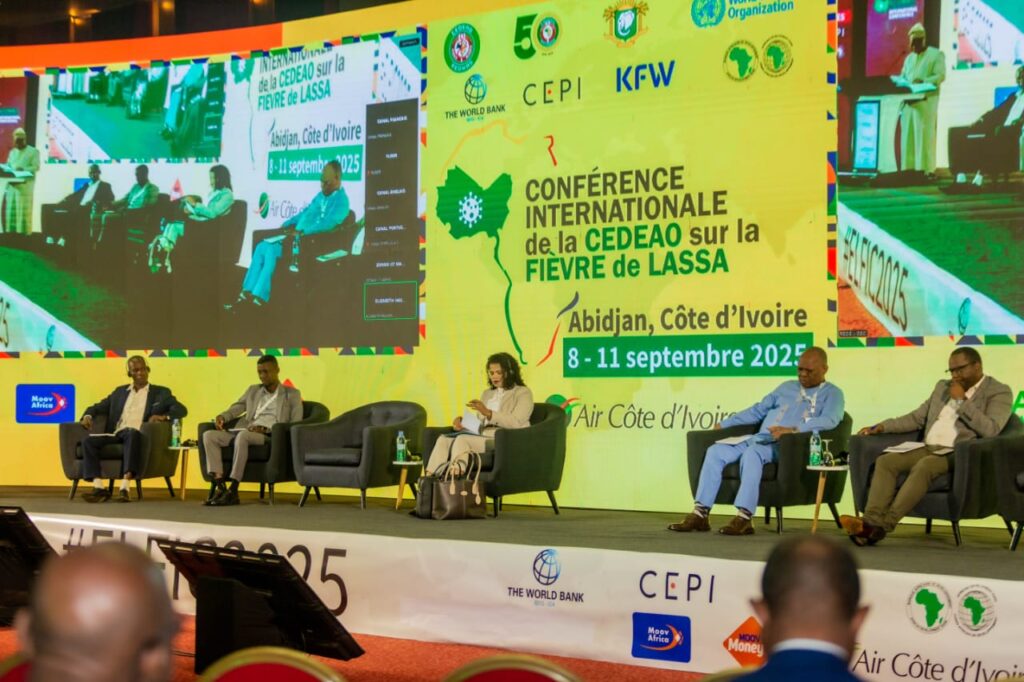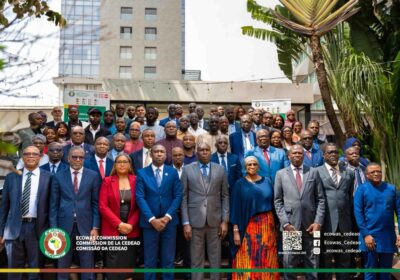West Africa: Lassa Fever in the Spotlight, Global Health Leaders Take Action at Abidjan 2nd ECOWAS Conference.
By Raymond Enoch.
Global health experts, scientists, policymakers, and development partners have gathered in Abidjan for the Second ECOWAS International Conference on Lassa Fever (ELFIC 2025), a high-level summit aimed at strengthening regional and international cooperation against one of West Africa’s most persistent viral threats.

Organized by the West African Health Organization (WAHO), the four-day event, running from September 8 to 11, brings together delegates from across the Economic Community of West African States (ECOWAS) and beyond. This year’s conference is themed “Beyond Borders: Strengthening Regional Cooperation to Combat Lassa Fever and Emerging Infectious Diseases,” underscoring the need for collective action in the face of transboundary health challenges.
The conference provides a platform for sharing recent advancements in scientific research, public health interventions, and policy frameworks, with a focus on preventing, diagnosing, and managing Lassa Fever. The disease, which is transmitted primarily through contact with rodent excreta or infected individuals, claims thousands of lives annually across the region and continues to pose a significant public health risk.
Participants include high-level representatives from the World Health Organization (WHO), the World Bank, the African Development Bank (AfDB), and the Coalition for Epidemic Preparedness Innovations (CEPI), alongside ministers of health and technical experts from across West Africa. Their presence reflects the growing urgency and international commitment to addressing the threat posed by Lassa Fever and other emerging infectious diseases.
Key components of the conference include panel discussions and technical workshops focused on vaccine development, improved diagnostic tools, and community-based prevention strategies. Ministerial dialogues are also being held to shape sustainable health policies and secure long-term financing for epidemic preparedness across the region. In addition, exhibitions and networking events are scheduled to promote collaboration between researchers, donors, and implementing partners, with an emphasis on translating science into actionable outcomes.
In his opening address, the Director General of WAHO highlighted the urgency of cross-border cooperation, noting that the porous nature of West African borders and high rates of population mobility complicate containment efforts. “We cannot tackle Lassa Fever in isolation,” the official stated. “This conference is a call to action to strengthen surveillance systems, invest in research, and build resilient health systems across the region.”
Experts attending ELFIC 2025 are expected to present progress on clinical trials for Lassa Fever vaccines, unveil innovations in point-of-care diagnostics, and share community engagement models that have demonstrated success in controlling outbreaks in hotspot regions.
As climate change, rapid urbanization, and political instability continue to create conditions conducive to infectious disease outbreaks, ELFIC 2025 aims to position West Africa as a proactive and prepared region. Organizers hope the knowledge shared and partnerships forged during the conference will not only strengthen current efforts against Lassa Fever but also bolster the region’s capacity to detect and respond to future epidemics.
The outcomes from this year’s conference are expected to inform ECOWAS regional health security strategies and influence international donor priorities, with the ultimate goal of saving lives and preventing future outbreaks before they occur.









